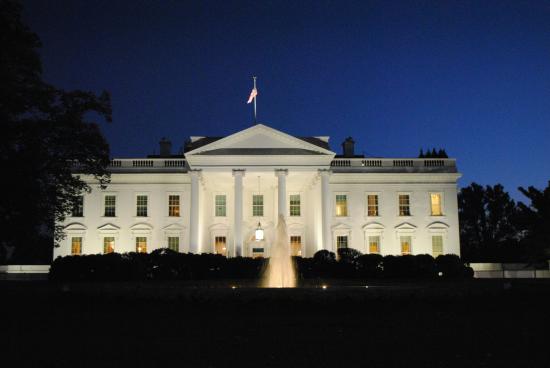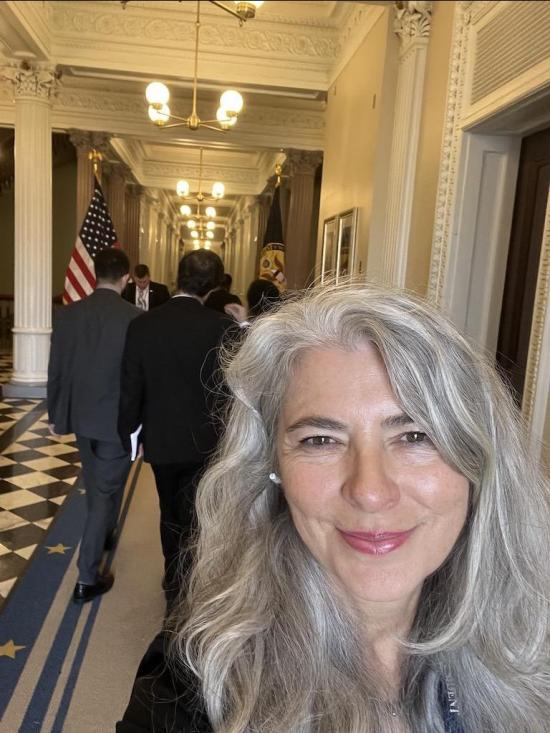White House Issues New Directive on AI and National Security

Today, the Biden-Harris Administration released the first-ever National Security Memorandum (NSM) on artificial intelligence and the accompanying Framework to Advance AI Governance and Risk Management in National Security (AI Framework), which lay out guidelines for promoting the safe and democratic use of AI in United States national security.
“This is a significant step,” said Professor Deirdre Mulligan, who spent the past two years working on the Administration’s AI agenda in the White House’s Office of Science Technology and Policy, “together with the federal guidance on Advancing Governance, Innovation, and Risk Management for Agency Use of Artificial Intelligence released in March 2023, it establishes the United States as a leader in the responsible use of AI for the public sector, aligning AI with democratic norms and values including transparency, protection for human rights, civil rights, civil liberties, privacy, and safety.”

Like President Biden’s Executive Order on the Safe, Secure, and Trustworthy Development and Use of Artificial Intelligence, signed in October 2023, the NSM is sweeping, said Mulligan, and directs actions by agencies across the government to, (1) ensure the United States leads the world’s development of safe, secure, and trustworthy AI; (2) harness powerful AI technologies to advance the national security mission; and (3) advance international AI governance frameworks that center safety, security and respect for human rights and democratic values.
Mulligan said the NSM “doubles down” on the importance of democratic values in guiding government use of AI in all contexts. The memorandum states: “Success for the United States in the age of AI will be measured not only by the preeminence of United States technology and innovation, but also by the United States’ leadership in developing effective global norms and engaging in institutions rooted in international law, human rights, civil rights, and democratic values.”
The accompanying AI Framework sets out governance structures and processes for using AI in national security systems. These include rigorous methods for evaluating AI, the incorporation of Civil Liberties and Privacy Officers and other agency staff with rights-relevant expertise into AI evaluations, and a list of prohibitions on using AI for certain purposes.
“The Biden-Harris Administration’s efforts attempt to ensure that AI is designed, used, and refused in line with democratic values,” Mulligan said.
This is further reflected, she said, in directives in the NSM to the Department of State, which is focused on America’s foreign policy, to develop a strategy for the advancement of international AI governance norms in line with safe, secure, and trustworthy AI.
“This will continue the US leadership in AI on the global stage,” Mulligan said, “building on the US-led United Nations General Assembly resolution on trustworthy AI for sustainable development, and other international efforts.”
Deirdre K. Mulligan is a professor at the I School focusing on legal and technical means of protecting values such as privacy, freedom of expression, and fairness in emerging technical systems. She joined the White House as Deputy United States Chief Technology Officer for policy in the Office of Science Technology and Policy (OSTP) in early 2023, then Principal Deputy U.S. CTO in June 2023 before returning to UC Berkeley this fall. She contributed to the NSM and the AI framework while at the OSTP.
Related
After two years at the White House’s Office of Science Technology and Policy (OSTP), where she served as Deputy Chief Technology Officer for Policy and then Principal Deputy U.S. CTO, Professor Deirdre Mulligan returned to the I School this fall.
UC Berkeley I School Professor Joins White House As Deputy Chief Technology Officer for Policy
Professor Deirdre K. Mulligan has been tapped to join the White House’s Office of Science and Technology Policy (OSTP) as Deputy U.S. Chief Technology Officer for Policy.
